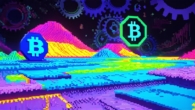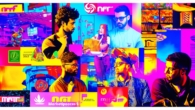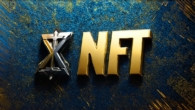
Is there a future for NFTs
Non-Fungible Tokens (NFTs) have taken the world by storm since their inception in 2017. These unique digital assets have opened up new possibilities in various industries such as art, music, gaming, and more. However, with great power comes great responsibility, and it’s essential to consider the potential and risks associated with NFTs before investing heavily in this technology. In this article, we will explore both sides of the coin and determine whether there is a future for NFTs.
Before diving into the potential and risks associated with NFTs, it’s crucial to understand what they are and how they work. An NFT is a unique digital asset that represents ownership of a particular piece of content such as art, music, or collectibles. Unlike cryptocurrencies like Bitcoin, which are interchangeable, NFTs have a one-of-a-kind value that cannot be replaced.
NFTs are built on blockchain technology, which provides a secure and transparent way to store and transfer ownership of these assets. Each NFT is stored on the blockchain as a unique digital file, with a timestamp and a record of all transactions associated with it. This makes it virtually impossible for anyone to tamper with or duplicate the asset.
Potential of NFTs
Now that we have an understanding of what NFTs are, let’s explore their potential in various industries.
Art and Collectibles
The art world has been revolutionized by NFTs, with artists and collectors now able to buy, sell, and own unique digital art pieces. This has opened up new possibilities for creators to monetize their work and for collectors to invest in rare and valuable pieces.
Music Industry
The music industry is also benefiting from NFTs, with artists and record labels now able to sell unique digital music tracks and merchandise. This has opened up new revenue streams for musicians and provided fans with exclusive content that they can’t find anywhere else.
Gaming Industry
The gaming industry has also embraced NFTs, with games now able to sell unique in-game items and assets that can be used across multiple platforms. This has opened up new possibilities for players to collect rare and valuable items and for game developers to monetize their content in new ways.
Risks of NFTs
While there are many potential benefits to NFTs, there are also some risks that need to be considered before investing heavily in this technology.
High Energy Consumption
One of the significant risks associated with NFTs is high energy consumption due to mining processes. The process of creating and verifying transactions on the blockchain requires a significant amount of computational power, which consumes vast amounts of energy. This has raised concerns about the environmental impact of NFTs and whether the benefits outweigh the costs.
Security Risks
Another risk associated with NFTs is security risks such as hacking and smart contract vulnerabilities. Since NFTs are stored on a public blockchain, they are vulnerable to hacking attacks that could result in the theft of valuable assets. Additionally, smart contracts, which are self-executing programs that automate the transfer of assets, can be vulnerable to coding errors or malicious actors who could exploit vulnerabilities in the code.
Legal and Regulatory Risks

The legal and regulatory risks associated with NFTs are also significant. As NFTs are a relatively new technology, there is a lack of clear guidelines on their use and ownership. This has raised concerns about how they will be treated by law enforcement agencies and whether they could be used in illegal activities such as money laundering or tax evasion. Additionally, the lack of regulation could make it difficult for investors to determine the authenticity of NFTs and protect themselves from fraud.
FAQs
Q: What are NFTs?
A: NFTs, or non-fungible tokens, are unique digital assets that represent ownership of a particular piece of content such as art, music, or collectibles. Unlike cryptocurrencies like Bitcoin, which are interchangeable, NFTs have a one-of-a-kind value that cannot be replaced.
Q: What industries are using NFTs?
A: NFTs are being used in various industries such as art, music, gaming, and more. They have opened up new possibilities for creators to monetize their work and for collectors to invest in rare and valuable pieces.
Q: What are the risks associated with NFTs?
A: The risks associated with NFTs include high energy consumption due to mining processes, security risks such as hacking and smart contract vulnerabilities, and legal and regulatory risks due to evolving guidelines on their use and ownership.
Conclusion
In conclusion, the future of NFTs is uncertain but promising. While there are many potential benefits to this technology, there are also significant risks that need to be considered before investing heavily in NFTs. It’s crucial for creators, investors, and regulators to work together to establish clear guidelines on the use and ownership of NFTs, while also addressing the environmental, security, and legal concerns associated with this technology. Only then can we determine whether there is a future for NFTs and how they will shape our world.







